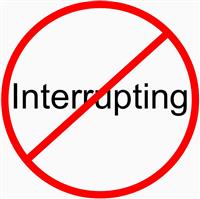Don't name your child Brenden. I mean Brandon.
/This post is not an indictment of the name Brandon or Brendan if one of these names happens to be your name or if you have assigned your child one of these names.
I've had friends and former students named both Brendan and Brandon, and are perfectly lovely people.
But if you're in the market for a future baby name, I suggest that you avoid these two names completely whenever possible. They create constant confusion and force the bearer of the name to repeat his name again and again, emphasizing pronunciation in order to avoid confusion.
In just the last two weeks, I have watched two Brendans go through conversations almost exactly like this:
Brendan: Hi, I'm Brendan.
Other: I'm sorry. Is that Brendan or Brandon?
Brendan: Brendan.
Other: Brendan?
Brendan: Yes, Brendan.
This doesn't seem like a big deal, but try doing it again and again for a lifetime.
Naturally, Brendans and Brandons will tell you that their names are perfectly fine and the occasional confusion and constant repetition isn't a big deal, but this is because they have lived with their name for all their lives. It's part of their identity. Of course they like their name.
Only self absorbed drama queens (both male and female) and people who hate their mothers complain about their first or middle names.
Objectively speaking, Brandon and Brendan are difficult and cumbersome when compared to most other names. Spare your child a lifetime of confusion.
If you're trying to choose between Brandon and Paul, go with Paul.
Brendan or David? Go with David.
Brandon or Brenden? There's no hope for you.


























